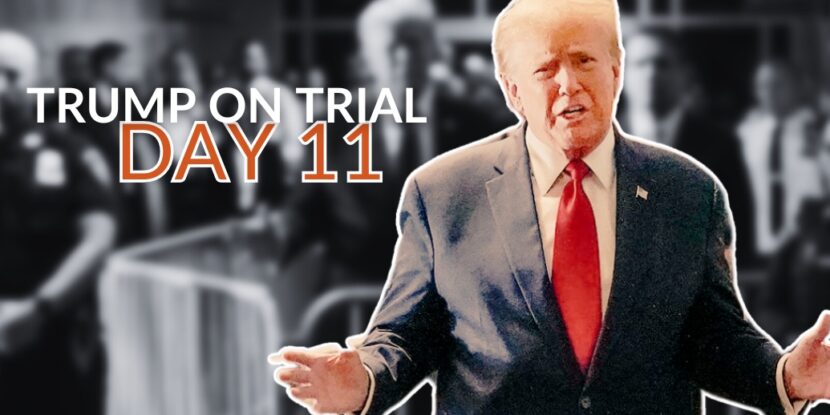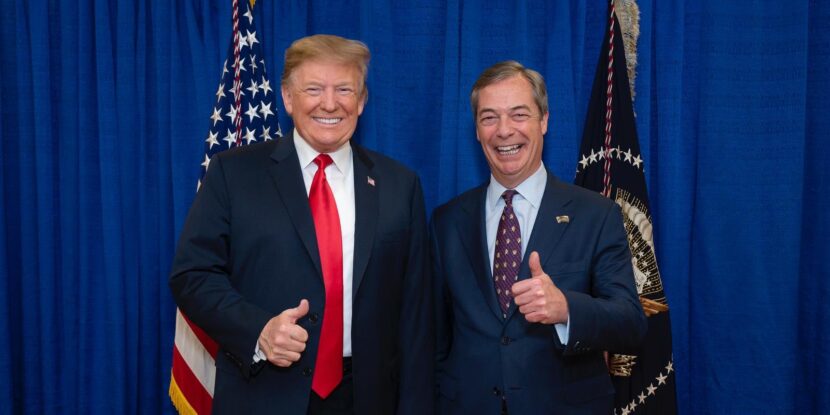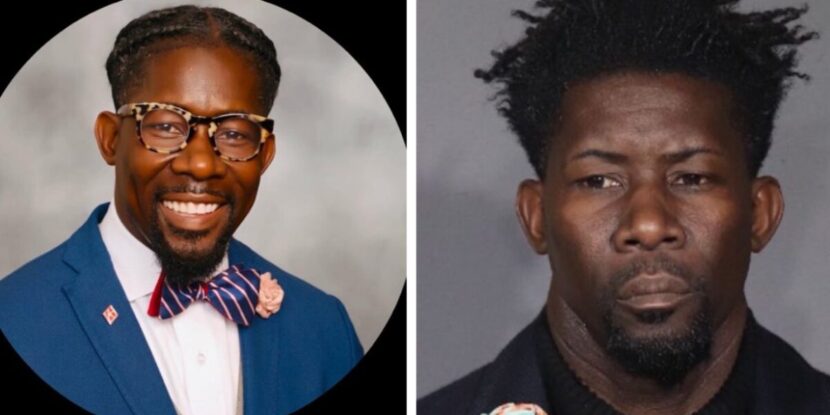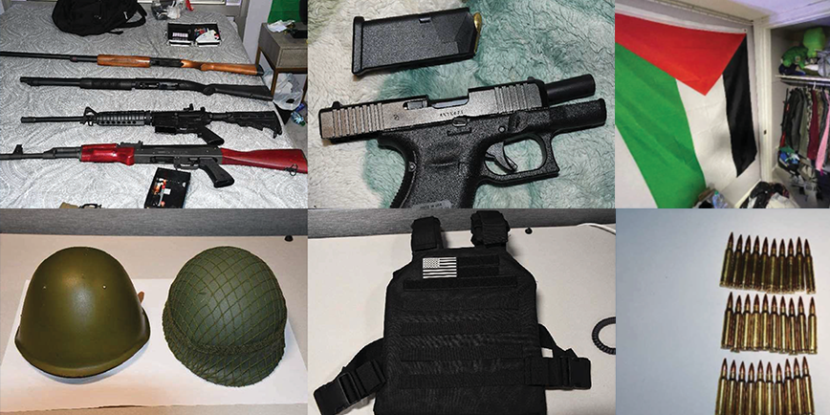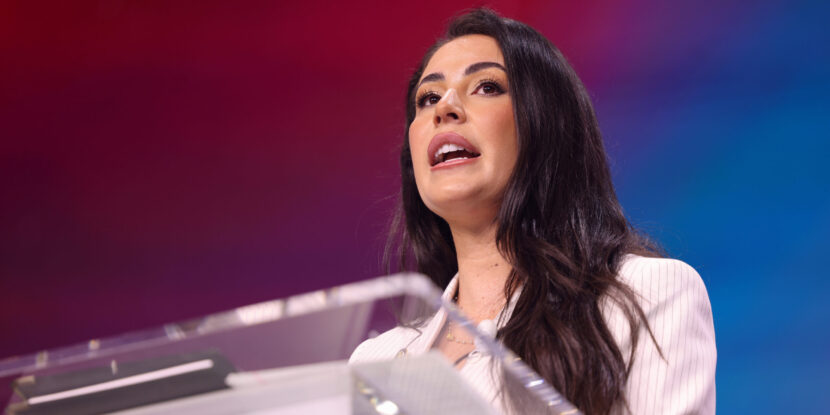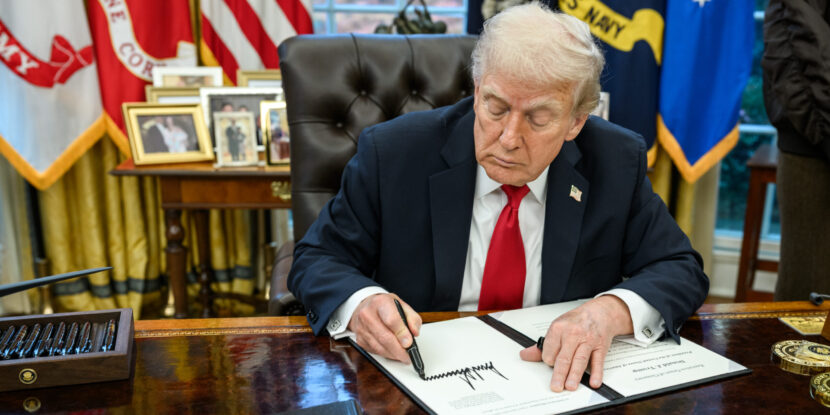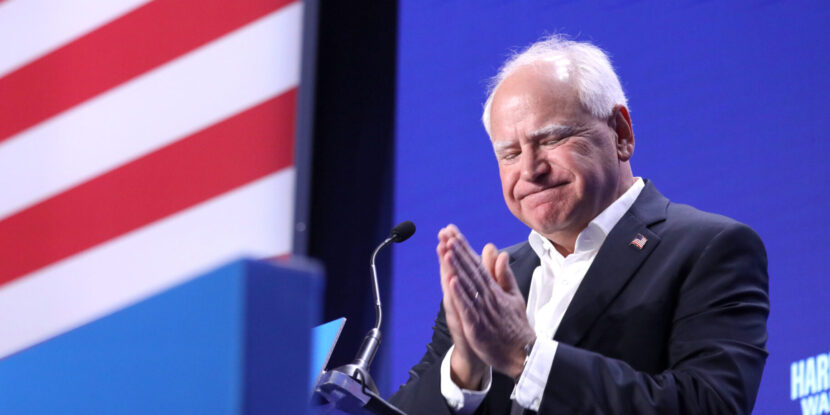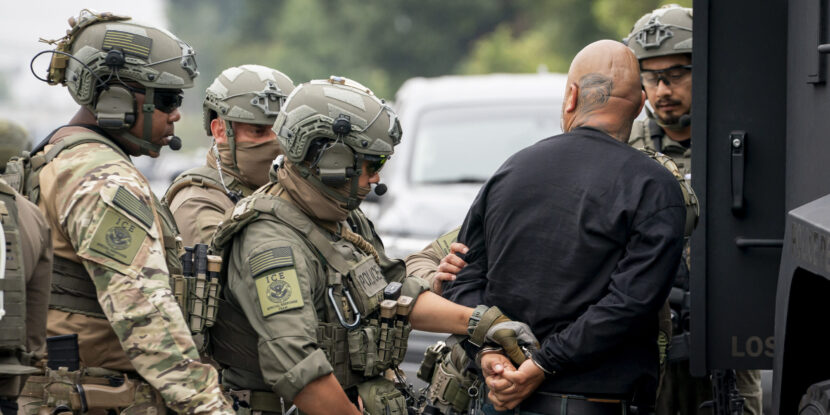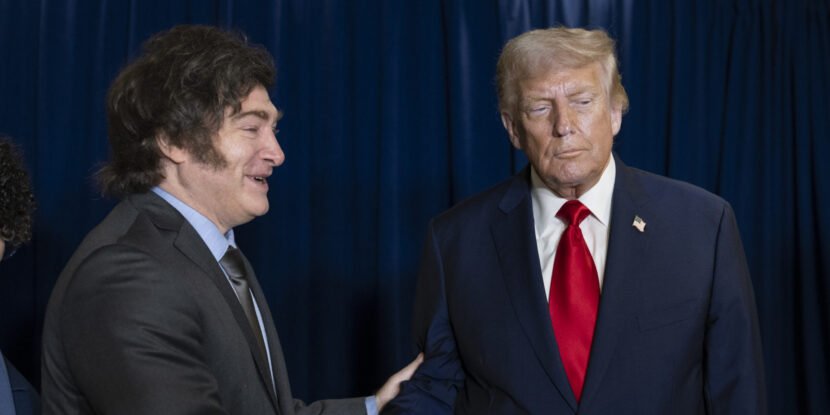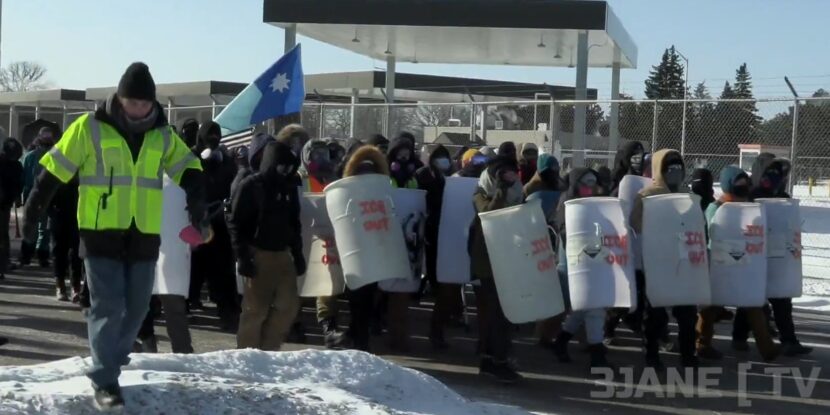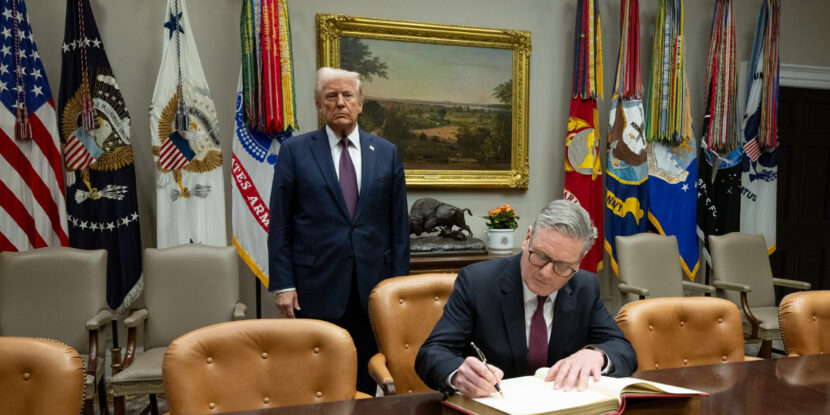The eleventh day of former President Donald J. Trump‘s Manhattan-based hush money trial was abbreviated, ending before 1PM. Defense attorneys for the former President finished their cross-examination of Madeleine Westerhout, a former White House aide. Despite being a witness called by the prosecution, Westerhout — like many of the prosecution’s witnesses — proved relatively damaging to its case under cross-examination by Trump’s defense team.
Following the conclusion of Westerhout’s testimony, jurors heard from a series of custodial witnesses used by the prosecution to enter new evidence into the court record. These witnesses, themselves, held little bearing on the course of the trial.
Democrat-aligned Judge Juan Merchan, meanwhile, denied a defense motion to issue a gag order on Michael Cohen. The disgraced attorney has made frequent public statements on TikTok against former President Trump. Additionally, Cohen has used social media to profit directly from the trial.
WESTERHOUT SINKS CHECK THEORY.
The prosecution has tried to make much out of former President Trump’s attention to detail. Several of the witnesses brought by the District Attorney’s office have primarily served to establish the approval process for payments, statements, and other documents within the Trump Organization, the 2016 Trump campaign, and the Trump White House. The goal is to portray the former President as someone who pays careful attention to detail and would have either had pre-knowledge or inquired about the nature of the payments to disgraced lawyer Michael Cohen.
However, during her cross-examination, Trump‘s former personal assistant in the White House threw cold water on the prosecution’s strategy. While she did testify that the former President was very detail-oriented, she explained that the busy nature of running the country resulted in Trump often signing checks while he was engaged in other tasks, including phone calls or speaking with aides. This recollection appears to cast reasonable doubt on the prosecution’s assertion that Trump was aware of the purpose of the payments to Cohen.
In a separate moment, Westerhout again reinforced the Trump defense team’s assertion that the former President was motivated to protect his family, not the 2016 election. “My understanding was it would be hurtful to his family,” Westerhout said, noting that the Stormy Daniels affair allegations made Trump “very upset.”
PROSECUTORS GRASPING AT STRAWS.
The prosecution‘s next witness was Daniel Dixon, a lead compliance analyst with AT&T. He testified as a records custodian, specifically regarding cell phone data relating to calls made between Michael Cohen and others. On the stand, Dixon spent most of his testimony establishing the veracity of cell phone call records submitted into evidence by the prosecution. These records allegedly show calls between Cohen and Trump that prosecutors allege revolved around the hush money payments.
Dixon’s questioning by the prosecution was short, though not as short nor as damaging as his cross-examination by former President Trump‘s defense team. Attorney Emil Bove handled the cross, immediately diving into the technical specifications of cell phone SIM cards.
CALL RECORDS REVEAL LITTLE.
Bove asked Dixon if a SIM card “can be pulled out of one phone and put into another?” Dixon responded, “Yes.” He next shifted to the nature of call records, pressing Dixon: “These records don’t reflect the content of these calls?” The AT&T analyst replied, “Correct.”
“You can’t tell from the records themselves who actually spoke?” Bove asked, Dixon again answering, “Correct.”
Casting doubt on the nature of the calls, Bove next asked Dixon: “You’re familiar with the concept of a pocket dial?” The analyst acknowledged that he was familiar with a pocket dial.
The next witness for the prosecution was Jennie Tomalin, a senior analyst with Verizon. Again, the prosecution called the witness primarily to introduce phone call records into evidence. One of the records concerns a call made involving Allen Weisselberg. The prosecution likely intends to bring up these records in later testimony by other individuals.
EVIDENTIARY WIN FOR TRUMP.
Just before the court took a brief break, former President Trump‘s defense attorney Emil Bove objected to a pending evidentiary exhibit by the prosecution. The Manhattan District Attorney‘s office intended to submit into evidence a 1999 interview between Trump and Larry King in which the subject of campaign finance law was discussed.
“There was extensive revisions to campaign finance laws in intervening period both statutory and by the Supreme Court,” Bove argued before Judge Juan Merchan. The defense attorney noted that the former President’s view on campaign finance law dating back to 1999 had little bearing on his views in 2016 or 2017. Prosecutors countered that the specific segment involved Trump’s opinion on the corporate contribution ban, which has been established law since 1907.
After the brief break, Judge Merchan ruled against the prosecution and denied the exhibit entrance into evidence.
MORE CUSTODIAL WITNESSES.
The prosecution next moved to recall Georgia Longstreet to the witness stand. Longstreet is a paralegal with the Manhattan District Attorney’s office. While her direct testimony last week and today hasn’t been impactful on the direction of the trial, she — like the phone company analysts — has been used by prosecutors to enter additional evidence into the court record and, subsequently, juror review.
Longstreet testified about the process by which the District Attorney’s office preserved social media posts by former President Trump. Again, her testimony served as a vehicle for the prosecution to continue entering Trump tweets into the court record.
TRUMP’S TWEETS.
Prosecutors focused on a handful of Trump‘s social media posts, primarily from 2017 and 2018. Longstreet was asked to read a 2018 post from Trump regarding disgraced lawyer Michael Cohen shortly after the FBI raided the latter. “If anyone is looking for a good lawyer, I would strongly suggest that you don’t retain the services of Michael Cohen!” the former President wrote on Twitter. Another tweet entered into evidence regarded Paul Manafort — with Trump stating that he felt “very badly for Paul Manafort and his wonderful family.”
Another post entered into evidence as a tweet addressing Cohen‘s monthly retainer and nondisclosure agreement. “Mr. Cohen, an attorney, received a monthly retainer, not from the campaign and having nothing to do with the campaign, from which he entered into, through reimbursement, a private contract between two parties, known as a nondisclosure agreement, or NDA,” Trump posted on Twitter on May 3, 2018.
TEXTS WITH A TABLOID.
Next, prosecutors began showing Longstreet a series of texts between Stormy Daniels‘s then-publicist, Gina Rodriguez, and former National Enquirer editor Dylan Howard. The messages mostly revolved around whether Daniels would talk to the tabloid when she’d talk to the tabloid and if she’d go on the record regarding the alleged affair with Trump.
A series of texts prosecutors reviewed with Longstreet appear to reveal negotiations between Rodriguez and Howard over just how much the National Enquirer would pay Daniels. “I can get 100?” Howard asked Rodriguez. The publicist responded, “Lol,” but followed up with, “Okay, what about 150?” Howard countered, texting back the number “110.” Rodrigues replied to the counter with “125k.” Howard’s next response read, “lol,” though he followed up with “120.” Daniels’s then-publicist replied, “Sold.”
Additional text messages revolved around Rodriguez threatening to sell the story to the Daily Mail as Cohen dragged his feet in paying Daniels.
COHEN’S TIKTOK.
Trump’s defense attorney, Todd Blanche, likewise took advantage of the custodial witness as the prosecution opened the door to discussing and reviewing social media accounts. Blanche asked Longstreet if she’d continued her work reviewing social media posts by individuals involved with the trial. He specifically mentioned posts by disgraced attorney Michael Cohen‘s TikTok, where he raised money off of the trial and continued to disparage former President Trump. Longstreet said that she had not seen the posts.
Moving past the TikTok posts, Blanche pivoted to the context of the communications reviewed by Longstreet. “When Ms. Rodriguez talks about offers from the Daily Mail and the timing of those offers, you have no knowledge of whether she was telling the truth, do you?” Blanche asked Longstreet. She replied, “No.”
“You just read what was written in the exhibit, correct?” Blanche asked the paralegal, continuing: “And that was different … from when Mr. Pecker is asked the reasoning behind text messages, correct?” Longstreet acknowledged that Pecker‘s testimony did contradict what was read from the text messages.
MORE PHONE RECORDS.
The last witness of the day was another paralegal from District Attorney Alvin Bragg‘s office. Prosecutors asked Jaden Jarmel-Schneider about the process of a report he prepared on calls between Michael Cohen and former Trump Organization CFO Allen Weisselberg. Again, Jarmel-Schneider was a custodial witness, which allowed the prosecution to introduce phone call records between Cohen and individuals like Dylan Howard, David Pecker, Gina Rodriguez, Keith Schiller, and Allen Weisselberg.
Jarmel-Schneider’s testimony culminated in prosecutors using the custodial witness to introduce a chart summarizing the 34 business records they allege were falsified. Trump’s defense team objected to this exhibit, but Judge Merchan overruled their objection.
Under cross-examination by Emil Bove, Jarmel-Schneider acknowledged that some of the call records and text messages between various individuals were, in fact, deleted. However, the paralegal did take issue with Bove’s assertion that the missing data was “significant.” On re-direct by the prosecution, Jarmel-Schneider claimed the missing data was still in evidence elsewhere.
MICHAEL COHEN TESTIFIES ON MONDAY.
The court adjourned early, wrapping up just before 1PM. Prosecutors and Trump‘s defense attorneys remained in the courtroom briefly to discuss some procedural matters ahead of Monday’s trial session, where it has been announced disgraced attorney Michael Cohen will testify.
Additionally, Democrat-aligned Judge Juan Merchan quashed a subpoena filed by Trump’s defense attorneys that would have compelled testimony from Mark Pomerantz, an attorney formerly with the Manhattan District Attorney’s office. Pomerantz, infamously, is one of the architects of the dubious legal theory being used by Alvin Bragg to prosecute Trump. Judge Merchan, in quashing the subpoena, called the request an “improper fishing expedition.”
National Pulse previously reported that Pomerantz refused to answer questions before a Congressional committee about his involvement in investigating former President Trump and whether he broke any laws in the course of that inquiry.
You can read The National Pulse’s Day Ten trial coverage here, and if you find our work worthwhile, consider joining up as a supporter.
